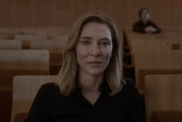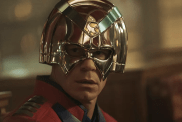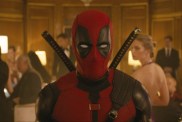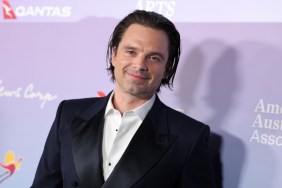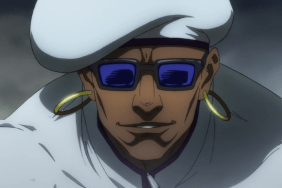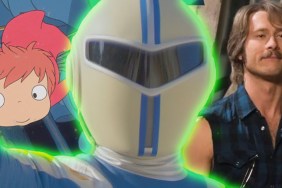Cast:
Nicolas Cage as Balthazar Blake
Jay Baruchel as Dave Stutler
Alfred Molina as Maxim Hovarth
Teresa Palmer as Becky
Toby Kebbell as Drake Stone
Monica Bellucci as Veronica
Ethan Peck as Andre
Alice Krige as Morgana
Review:
You know what I think of whenever I delve into Goethe? I think it would make an awesome summer adventure movie in the Jerry Bruckheimer vein. I think we can all agree “The Sorrows of Young Werther” would be much better if there were contemporary references and jokes in it, and some more explosions.
To be fair, I probably wouldn’t have thought Goethe would make for a good cartoon until Disney did it (which isn’t fair, considering how many fables he wrote), though it helps to have a very nifty scherzo written for it. Still, it worked once thanks to the help of Mickey Mouse and some nifty visual imagination, so it has the possibility to work again, right?
Not really, no.
Balthazar Blake (Nicolas Cage) needs a young boy. No! That’s not good. Balthazar Blake (Nicolas Cage) needs an apprentice. Yes, better. You see, centuries ago when Merlin was betrayed by his apprentice Morgana (Alice Krige) he told Balthazar he would one day find a young man, a descendant of Merlin himself, who would have the power to defeat her forever. When young Dave Stutler (Jay Baruchel) wanders into his magic shop, Balthazar seems to have found his man. Boy. Whatever. Unfortunately, Dave also unleashes Balthazar’s archenemy Horvath (Alfred Molina) from the Russian nesting doll he’d been trapped in. Now the clock is ticking for Balthazar to train his apprentice up before Horvath can find the doll and unleash Morgana herself to wreak havoc once again.
A lot’s been written about the rise of the auteur and how much superior director-led filmmaking was to the old studio factory system. I can’t think of any better example of that than “The Sorcerer’s Apprentice” even though it’s here nearly 60 years since the studio system theoretically ended. After the success of the “Pirates of the Caribbean” films, which was admittedly a feat considering the source material was a theme park ride, the thinking seems to be why not apply a similar patina to other Disney properties. Leverage your properties to their full extent. It’s a very business-heavy, studio-heavy point of view that lays a heaping helping of prefabricated story design and film elements on top of a concept and calls it a story.
That can occasionally work, but more often than not you get something soullessly marketing-oriented like “The Sorcerer’s Apprentice.”
Dave is very much your ‘young man at the start of the Hero’s Journey’ archetype. After years of trying to forget his initial meeting with Balthazar he finds his destiny thrust upon him when Balthazar and all his magical craziness return. Dave just has a few days to learn what it takes to be a sorcerer, all while trying to keep the nesting doll–the Grimhold–from Horvath and trying to reconnect with the girl of his dreams (Teresa Palmer).
Jon Turteltaub (“National Treasure”) has done more with less and he, Cage and Bruckheimer have teamed to solid effect before, overcoming concept silliness by virtue of sheer fun and entertainment. “The Sorcerer’s Apprentice” seems beyond him, though most of its problems can be laid at the feet of the script, which is credited to five people never a good sign.
First and foremost, there is some role confusion. Dave is a decently-designed audience substitute; he doesn’t do anything differently from any of his Heroes Journey forebears (from Luke Skywalker on down), but Baruchel’s natural charm and engaging doofiness makes it work. On the hand, the story keeps trying to double book Cage as both the aged mentor and an action hero in his own right. For this sort of thing to work, the mentor has to be taken out of the equation and leave the hero to stand on his own and “Sorcerer’s Apprentice” really doesn’t want to do that and puts it off as long as possible and quite a bit longer than it should. More to the point – it requires the film to spend some time developing Balthazar’s back story, his history with Morvath and his long lost love, in order to add weight to his heroic moments. It’s good for Balthazar’s character, but it detracts mightily from time that would have benefitted building up Dave more.
It also commits one of the worst fantasy story sins, the creation of jargon. It’s fine to have made up words and ideas to build the idea of a fantasy world, but it’s got to develop organically and make sense in and of itself. A lot of writers, when faced with writing fantasy, fall into a habit of using new words as an element of world building but the reality is that sort of thing has a tendency to drag a casual viewer out of the film as it often sounds false. An extremely exposition-heavy prologue that crams phrases like Prime Merlinian and Morganian into it isn’t the best way to go about introducing all this new world stuff, especially when everyone insists on saying it extremely seriously as if they had attained a level of meaning they hadn’t earned yet.
Worse, it doesn’t really know what to do with its inspiration. The classic ‘Sorcerer’s Apprentice’ story from Goethe and Paul Dukas which made up the original “Fantasia” short is reproduced within the film in an interesting little segment that has little to do with anything going on around it and exists only as a link back to it’s ‘beginnings.’ More than that, the film spends most of its time with Balthazar trying to thrust power and responsibility into Dave’s hands while he takes the (very common for this kind of film) step of trying to avoid or at least treating them as less important than other parts of his life, and trying to create artificial tension that way.
Contrast that with both the fable and the “Fantasia” short which are entirely about reaching for power you’re not ready for yet and the dangers that come with it. Which wouldn’t matter if the film didn’t purposefully use that same lesson in its one call back to the original, making it something of a misnomer. It seems like it would have made more sense to have Dave, an eager physics student in his real life, overreaching in his quest to learn sorcerer and Balthazar’s efforts to pull him back from danger and teach him. It would fit naturally with the fable the filmmakers are drawing from and still provide needed dramatic tension. But it wouldn’t have fit with in the framework that is being forced on to the film and on to us. “The Sorcerer’s Apprentice” is less of a story than a checkbox of adventure film moments.
The comic relief is predictably good, from Baruchel himself (who despite being the titular apprentice is more of a sidekick for most of the film) to Toby Kebbell as Morvath’s own magical minion, who steals most of his scenes. But big-budget adventure movie isn’t about comic relief and when that’s the only part that works there are some big holes that need filling.
It also looks quite nice with some well-designed adventure moments and clean camera work that’s flashy but usually elegant. But that’s a few islands of interest on a sea of interchangeable marketing parts that’s all sizzle and no substance. I’m not asking for deep philosophy or character development, but something besides perfunctory plot development is needed or else you just get something hollow. “The Sorcerer’s Apprentice” is hollow.


